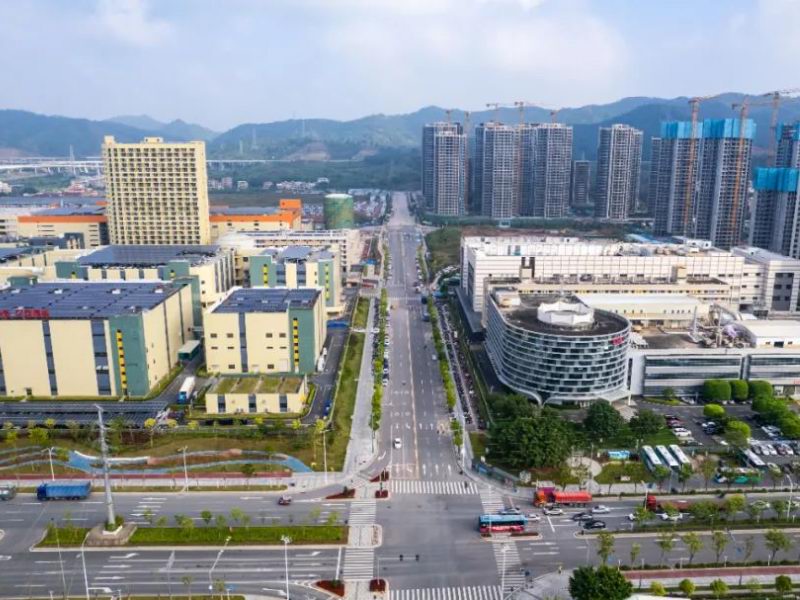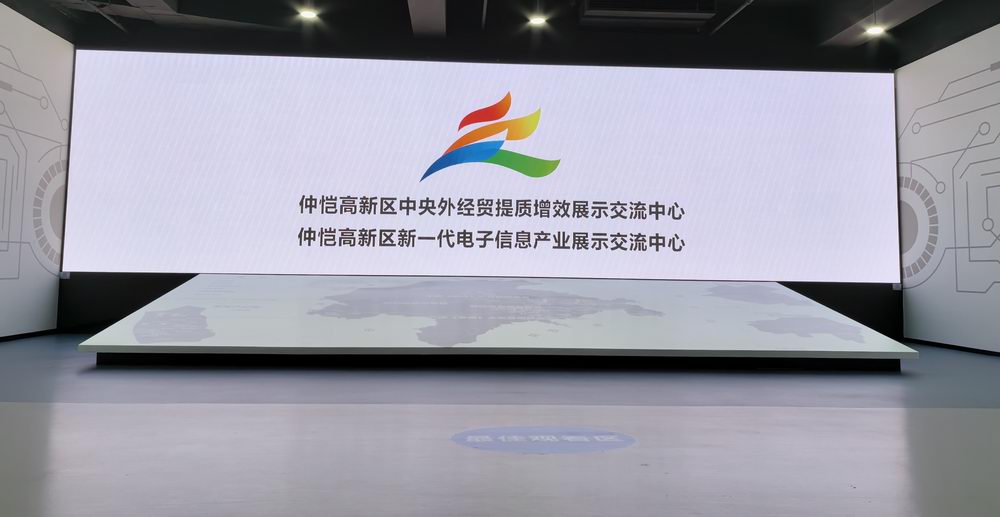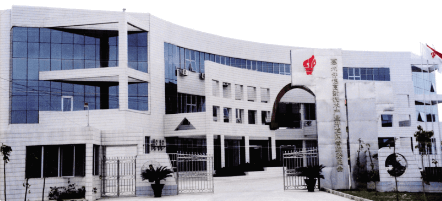Understanding National Foreign Trade Transformation Bases

National foreign trade transformation and upgrading base plays a crucial role in enhancing trade efficiency. These bases integrate production and export functions, supported by public service platforms. China's Ministry of Commerce has identified 105 such bases, aiming to boost industrial clusters. Trade not only increases productivity but also offers access to foreign technology and investment. This leads to a greater variety of goods and services. The blog explores how these bases impact trade competitiveness and their relevance in today's global economy.
National Foreign Trade Transformation and Upgrading Base

Defining the Concept
Integration of Production and Export Functions
The National foreign trade transformation and upgrading base serves as a hub where production and export activities come together. This integration allows businesses to streamline their operations. Companies can produce goods and immediately prepare them for international markets. This setup enhances efficiency and reduces costs. The World Trade Organization (WTO) membership offers opportunities for service-based export-led economies. Businesses can leverage these opportunities by integrating production with export functions.
Successful digital transformation stories highlight how companies thrive by adopting new technologies. These transformations often involve integrating production and export processes. Businesses can achieve significant growth by embracing digital tools. This integration leads to improved productivity and competitiveness.
Role of Public Service Platforms
Public service platforms play a vital role in supporting these bases. These platforms provide essential services to businesses. Services include logistics, quality control, and market research. Companies can access these services to enhance their export capabilities. Public service platforms also offer training programs. These programs help businesses stay updated with global trade practices. Access to such resources boosts a company's ability to compete internationally.
Importance in Trade
Enhancing Industrial Cluster Effect
The National foreign trade transformation and upgrading base contributes to the formation of industrial clusters. These clusters bring together businesses from related industries. Proximity allows companies to share resources and knowledge. This collaboration leads to innovation and growth. Industrial clusters also attract investment. Investors see the potential for high returns in these concentrated areas.
Improving Support for Foreign Trade Activities
Support for foreign trade activities improves significantly within these bases. Businesses receive assistance in navigating international regulations. Public service platforms offer guidance on compliance with trade laws. Companies can focus on expanding their market reach with this support. The availability of resources and expertise makes it easier for businesses to enter new markets. Improved support leads to increased trade volumes and economic growth.
historical context and development
Evolution of Trade Transformation Bases
From Traditional to Modern Trade Models
The journey from traditional trade models to modern ones has been quite fascinating. The Age of Exploration marked a significant expansion of international trade routes. This period saw explorers like Christopher Columbus and Vasco da Gama opening new paths for commerce. These explorations laid the groundwork for global trade networks. Fast forward to the Industrial Revolution, technological advancements facilitated mass production. Factories began churning out goods at unprecedented rates. This shift enabled countries to engage in trade on a global scale. The National foreign trade transformation and upgrading base emerged as a response to these evolving trade dynamics. These bases integrate production and export functions, making trade more efficient.
Impact of Globalization and Technological Advancements
Globalization has played a pivotal role in shaping modern trade. The integration of national economies into a global system led to remarkable growth in trade between countries. Businesses gained access to international markets, fostering competition and innovation. Technological advancements further accelerated this process. The rise of the internet and digital technologies transformed how businesses operate. Companies can now reach customers worldwide with just a click. The National foreign trade transformation and upgrading base capitalizes on these advancements. These bases provide the infrastructure needed to support modern trade practices.
Key Historical Milestones
Establishment by China's Ministry of Commerce
China's Ministry of Commerce took a significant step by establishing the National foreign trade transformation and upgrading base. This initiative aimed to enhance the industrial cluster effect. The ministry identified 105 such bases across the country. Each base serves as a hub for production and export activities. This strategic move helped streamline trade processes. Businesses within these bases benefit from shared resources and expertise. The establishment of these bases marked a turning point in China's trade strategy.
Contribution to Trade Structure Optimization
The National foreign trade transformation and upgrading base has contributed immensely to trade structure optimization. These bases facilitate the transformation of traditional industries. New trade models have emerged as a result. The post-World War II period saw a significant increase in international trade. More free trade agreements were signed, promoting economic cooperation. The bases play a crucial role in adapting to these changes. They help businesses navigate the complexities of modern trade. The focus remains on driving economic growth and innovation.
Implications for Modern Trade
Economic Growth and Innovation
Driving Economic Development
The National foreign trade transformation and upgrading base plays a pivotal role in driving economic development. Trade liberalization enhances economic efficiency, which boosts national average incomes and macroeconomic productivity. The integration of production and export functions within these bases streamlines operations. Businesses can produce goods more efficiently and reach international markets swiftly. This efficiency contributes to economic growth by increasing trade volumes and attracting foreign investment.
Trade serves as a catalyst for economic growth. The National foreign trade transformation and upgrading base facilitates this process by providing the necessary infrastructure and support. Businesses within these bases benefit from shared resources and expertise. This collaborative environment fosters innovation and drives economic development. The strategic location of these bases also attracts investment, further fueling economic growth.
Promoting New Trade Models
The National foreign trade transformation and upgrading base promotes the development of new trade models. These bases adapt to changing global trade dynamics by embracing technological advancements. Businesses can leverage digital tools to enhance their operations and reach new markets. The integration of production and export functions allows companies to explore innovative trade models.
Trade liberalization supports the diffusion of technologies that reduce greenhouse gas emissions. The National foreign trade transformation and upgrading base plays a crucial role in promoting sustainable trade practices. Businesses can adopt eco-friendly technologies and contribute to environmental conservation. This approach aligns with global efforts to address climate change and promotes the development of new trade models.
Challenges and Opportunities
Adapting to Technological Changes
Technological advancements present both challenges and opportunities for the National foreign trade transformation and upgrading base. Businesses must adapt to rapidly changing technologies to remain competitive. The integration of digital tools into production and export processes enhances efficiency and productivity. Companies can streamline operations and reach international markets more effectively.
The National foreign trade transformation and upgrading base provides the infrastructure needed to support technological adaptation. Public service platforms offer training programs to help businesses stay updated with the latest technologies. This support enables companies to navigate the complexities of modern trade and seize new opportunities.
Addressing Environmental Concerns
Environmental concerns pose a significant challenge for the National foreign trade transformation and upgrading base. Businesses must adopt sustainable practices to minimize their environmental impact. The integration of eco-friendly technologies into production processes reduces greenhouse gas emissions. This approach aligns with global efforts to combat climate change and promotes sustainable trade practices.
The National foreign trade transformation and upgrading base supports businesses in addressing environmental concerns. Public service platforms offer guidance on implementing sustainable practices. Companies can access resources and expertise to develop eco-friendly solutions. This support enables businesses to contribute to environmental conservation while remaining competitive in international markets.
Relevance in Today's Global Economy

Application in Current Trade Policies
Case Studies of Successful Implementation
Trade policies shape the global economy. Successful implementations offer valuable insights. Consumer Benefits from EU Trade Agreements highlight how trade agreements can improve product quality. EU consumers save €24 billion annually due to enhanced product standards. This case shows the power of well-crafted trade policies.
Impact of Trade Policy on South Korea provides another example. South Korea's trade policies have significantly influenced domestic markets. The country has seen growth in various sectors. These examples illustrate the potential of strategic trade policy implementation. Countries can achieve economic growth and consumer benefits through thoughtful policy-making.
Policy Implications and Recommendations
Trade policies must adapt to changing global dynamics. Policymakers should focus on enhancing product quality. This approach benefits consumers and boosts competitiveness. Countries should also consider the impact of trade policies on domestic markets. A balanced approach ensures sustainable growth.
Policymakers must prioritize innovation. Encouraging technological advancements strengthens trade policies. Countries should invest in infrastructure to support modern trade practices. This investment fosters economic development and global competitiveness. Strategic policy recommendations can guide countries toward successful trade outcomes.
Future Prospects
Potential for Further Development
The future holds immense potential for trade transformation bases. Countries can leverage these bases to drive economic growth. Investment in infrastructure enhances production and export capabilities. Businesses can explore new markets and expand their reach.
Technological advancements offer opportunities for further development. Companies can integrate digital tools into their operations. This integration streamlines processes and improves efficiency. Countries can capitalize on these advancements to boost trade volumes. The future promises exciting possibilities for trade transformation bases.
Encouragement for Continued Innovation
Innovation remains crucial for trade success. Businesses should embrace new technologies and practices. This approach ensures competitiveness in international markets. Companies can explore innovative trade models to stay ahead.
Countries should foster a culture of innovation. Encouraging research and development drives economic growth. Governments can support businesses through incentives and resources. Continued innovation paves the way for a thriving global economy.
National foreign trade transformation bases significantly impact global trade. These bases enhance productivity and provide access to foreign technology. Businesses benefit from innovation and streamlined operations. Trade plays a crucial role in international relations and national security policy. The integration of production and export functions shapes modern trade practices. Policymakers and businesses should explore these bases further. Understanding their impact can lead to improved trade policies. This exploration encourages continued innovation and economic growth.
See Also
Investigating National Foreign Trade Transformation and Upgrading Base for Growth
Discovering Zhongkai High-tech Zone's National Foreign Trade Transformation Hub
Prosperity of Zhongkai High-tech Zone: National Foreign Trade Transformation Hub
Unveiling Huizhou Zhongkai High-tech Zone's Trade Transformation Base
Zecheng Technology's Impact on Zhongkai High Tech Zone's Trade Evolution
Zhongkai High tech Zone National foreign trade transformation and Upgradi Base(Electronic Information)Cloud Platform.
Address: Zhongkai High-tech Zone,Huizhou City ,Guangdong,China
E-mail: huizhoueii@163.com 13510001271@163.com
Tel: +86-0752-3279220 Mobile: +86-13510001271


